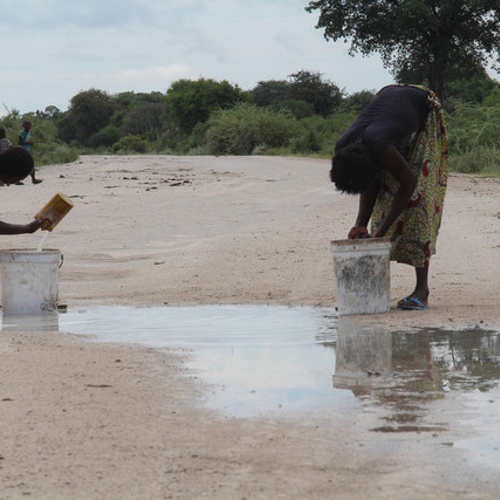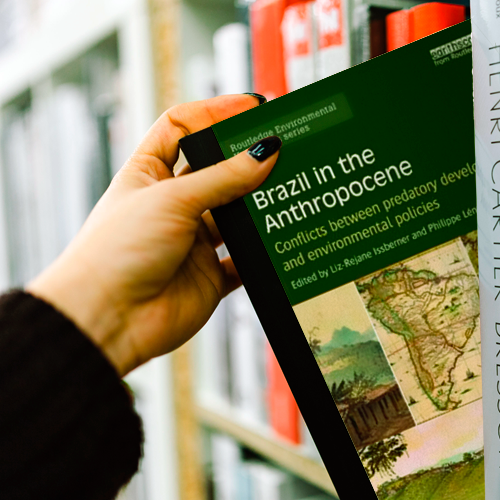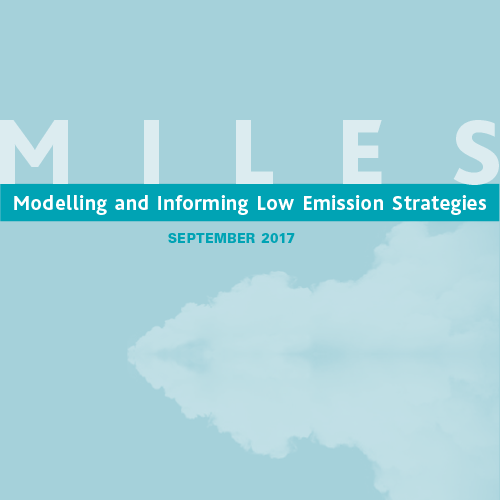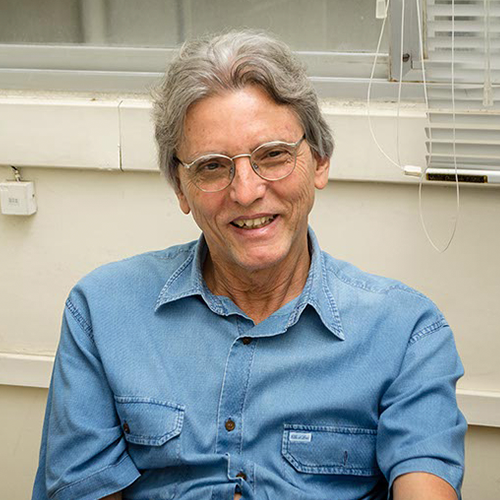 Professor Emilio La Rovere will attend The Latin American and Caribbean Carbon Forum (LACCF), on October 18, 2017, in Mexico, to represent The Center for Integrated Studies on Climate Change in an important discussion about carbon pricing.
Professor Emilio La Rovere will attend The Latin American and Caribbean Carbon Forum (LACCF), on October 18, 2017, in Mexico, to represent The Center for Integrated Studies on Climate Change in an important discussion about carbon pricing.
This session is organized as part of a join segment between the LAC Carbon Forum and the Regional LEDS LAC Workshop.
Plenary 2: What role for carbon pricing for delivering on the Paris Agreement?
Date & Time: October 18 – 11:30am to 1pm
Description: The report of the High-Level Commission on Carbon Prices, led by Nobel Laureate Joseph Stiglitz and Lord Nicholas Stern, concluded that a well-designed carbon price is an indispensable part of a strategy for efficiently reducing greenhouse gas emissions while also fostering growth. To meet the Paris Agreement goal, a strong carbon price is needed in the next years ($40-$80 per tonne of CO2 by 2020 and $50-100 per tonne by 2030). However today, only 85% of global emissions are covered by a carbon pricing instrument and three quarters of these emissions are covered by a price under US$10/tCO2e. This high-level dialogue will discuss how to accelerate action to expand coverage and the impact of carbon pricing instruments in the LAC region, and explore the opportunities unveiled when implementing carbon pricing instruments, to use revenues to foster growth and achieve sustainable development objectives.
Beatriz Bugeda, Regional Manager, Mexico & Latin America, The Climate Reality Project
Find more about the LACCF: http://latincarbon.com/
 Esse Simpósio Internacional ocorrerá nos dias 12 e 13 de outubro, em Rabat, sob o tema "Governança do Clima em África: Desafios de uma redefinição do problema climático no nível político" (em francês: “Gouvernance climatique en Afrique: enjeux d’une redéfinition du problème climatique à l’échelle politique”)
Esse Simpósio Internacional ocorrerá nos dias 12 e 13 de outubro, em Rabat, sob o tema "Governança do Clima em África: Desafios de uma redefinição do problema climático no nível político" (em francês: “Gouvernance climatique en Afrique: enjeux d’une redéfinition du problème climatique à l’échelle politique”)
Esse simpósio, organizado pela Universidade Internacional de Rabat (UIR), a Fundação Konrad Adenauer e o Centro Internacional de Pesquisa para o Desenvolvimento, tem como objetivo a criação de redes de pesquisadores, especialistas em clima, decisores e sociedade civil interessada por este tema com o objetivo de proporcionar a uma reflexão coletiva sobre o modelo de governança climática a ser adotado no continente.
A reunião, que unirá pesquisadores, especialistas e profissionais do clima, discutirá os desafios e as limitações das respostas africanas aos desafios climáticos, de acordo com uma declaração da UIR.
Organizado um ano após o COP22 de Marraquexe, este colóquio também será a ocasião para informar a um amplo público sobre as iniciativas e os projetos em andamento no campo do clima em África.
A ideia principal do evento é aproveitar a oportunidade de interações entre profissionais do clima e observadores (acadêmicos e sociedade civil) para que se alcance propostas concretas sobre governança climática africana que possam interessar e atender os tomadores de decisão.
Confira o convite AQUI
Confira a programação AQUI
Fonte: texto traduzido e adaptado do original em Mapecology
 O seminário “O Brasil no Antropoceno”, que acontece dia 27 de setembro, de 9h30 às 18h, no auditório do Museu do Amanhã e é inspirado no livro Brazil in the Anthropocene (O Brasil no Antropoceno), lançado em inglês pela editora Routledge em 2017. O evento conta com a participação de diversos dos seus autores entre outros importantes palestrantes com intuito de abordar temas urgentes como mudanças climáticas, redução da biodiversidade, crescimento populacional, economia de baixo carbono e políticas públicas.
O seminário “O Brasil no Antropoceno”, que acontece dia 27 de setembro, de 9h30 às 18h, no auditório do Museu do Amanhã e é inspirado no livro Brazil in the Anthropocene (O Brasil no Antropoceno), lançado em inglês pela editora Routledge em 2017. O evento conta com a participação de diversos dos seus autores entre outros importantes palestrantes com intuito de abordar temas urgentes como mudanças climáticas, redução da biodiversidade, crescimento populacional, economia de baixo carbono e políticas públicas.
É importante salientar que o capítulo 12 do livro - "Pathways to a low carbon economy in Brazil" foi escrito pelo Prof. Emilio Lèbre La Rovere em coautoria com os pesquisadores do LIMA/CentroClima Claudio Gesteira, Carolina Grottera e William Wills, texto interessante que enriquece o debate atual sobre economia do carbono em nosso país.
Confira a Programação aqui.
Para increver-se ou obter mais informações, clique aqui.
 Results of the MILES project informing the 2018 Facilitative Dialogue
Results of the MILES project informing the 2018 Facilitative DialogueBrussels, September 22 – In order to reach the collective Paris Agreement’s goal of keeping global temperature rises to “well below 2°C”, countries need to submit more ambitious Nationally Determined Contributions (NDCs). This requires to focus not only on countries’ aggregate emission levels, but also on the sectoral transformations needed to drive decarbonisation. Today, the MILES project, coordinated by the Institute for Sustainable Development and International Relations (IDDRI), publishes its results about the key levers to foster these sectoral transformations in the European Union and in 7 key countries (Brazil, China, India, Indonesia, Japan, Mexico and the United States). The results will be also presented to the European Commission in Brussels today.
The MILES project confirms that, to reach the Paris long term goals, countries must consider deeper emission reductions than those implied in their current NDCs. They must also start the enhanced mitigation efforts already in 2020 to align the short-term strategies with requirements for long-term transformations.
A necessary condition to ensure the alignment of the updated NDCs with the longer term transformation required by 2050 is to analyse and communicate sectoral transformation at a granular level - as opposed to accounting only for emissions reductions.
For example in the US, reaching an ambitious 80% reduction of economy-wide emissions in 2050 compared to 2005 levels corresponds to a linear decrease from 2020 through the 26-28% decrease by 2025 in the NDC. But, the US study in MILES shows that following this emission trend would require non-linear transformations, involving for example a tripling of annual low-carbon energy capacity additions after 2025.
“ ’Opening the box’ of sectoral transformations is key for the progressive revision of NDCs and their implementation: it helps identifying concrete short-term policies and measures triggering the required long-term transformations”, says Michel Colombier, IDDRI scientific director.
(for more details, please see the Policy Brief):
> A smooth transition towards 2C requires an acceleration of investment shifts in the energy sector before 2030. For example, the Mexican study shows that, to deliver on its 2050 national mitigation targets, which are consistent with the 2°C global objective, the country should avoid the 2018-2022 gas build-up consistent with its current NDC, and rather pursue a steady increase in renewable energy supply before 2020.
> The diffusion of key emerging low-carbon technologies should be accelerated, which notably requires a scale-up of international collaboration on innovation Current NDCs assume little penetration until 2030 of some emerging low-carbon technologies, while the analysis shows that these solutions would play an important role in low-carbon trajectories after that date. The analysis on China shows an important role for CCS after 2030 despite marginal deployment before that date in its NDC; this points to the need for coordinated early efforts supporting realistic conditions for these deployments through accelerated research, development and diffusion. The European Union study shows a similar conclusion for electric vehicles, which points to the need for adequate policies and infrastructure deployment favoring the accelerated diffusion of these vehicles over the next 15 years and preparing its scale-up after that date.
> Electrification of energy end-uses is not sufficiently considered in current NDCs
This is particularly true in countries such as Japan, where energy efficiency is already very high and decarbonisation of energy is quite advanced, so that electrification therefore represents a key opportunity to reach additional emission reductions.
> Mitigation strategies targeting also non-energy sectors are more cost effective and flexible. The analysis on China shows that the mitigation of only energy-related emissions provides limited associated reductions of other gases than CO2, for instance methane, so that policies specifically targeting non-energy emissions are needed. The analysis shows that, even when such measures are included for agriculture and land-use in Brazil NDC, the concrete mitigation potential are not quantified despite their key role in overall national mitigation.
“The sectoral approach of NDCs reinforces the credibility of country commitments by making explicit the link between emissions targets and national sustainable development objectives. Reconciling these different objectives is essential to maximise social and political support to the transformation”, explained Teresa Ribera, director of IDDRI.
These lessons learnt from the project can help inform the discussions on the stocktake of collective action at the 2018 Facilitative Dialogue and foster the increase of ambition by 2020. “The MILES consortium provides a key contribution to the process launched by the Paris Climate Agreement. It maximises the collective value of NDCs by identifying where international cooperation would be crucial to boost the national low-carbon transformation”, explained Michel Colombier. “This is essential for sending the right signals to non-state actors, notably investors, and enabling the convergence of their own strategies with the collective climate goals,” he added.
MILES is a 3-year project (2014-2017), coordinated by the Institute for Sustainable Development and International Relations (IDDRI) and financed by the European Commission, which brings together research partners from US, Japan, Europe, China, India, Brazil, Mexico and Indonesia in order to develop low-emission development strategies at national and global levels.
 O Prof. Emilio La Rovere participará hoje do Programa Sem Censura, na TV BRASIL, de 17h às 18:30h, onde falará sobre Mudanças Climáticas.
O Prof. Emilio La Rovere participará hoje do Programa Sem Censura, na TV BRASIL, de 17h às 18:30h, onde falará sobre Mudanças Climáticas.
É possivel acessar a entrevista AQUI
